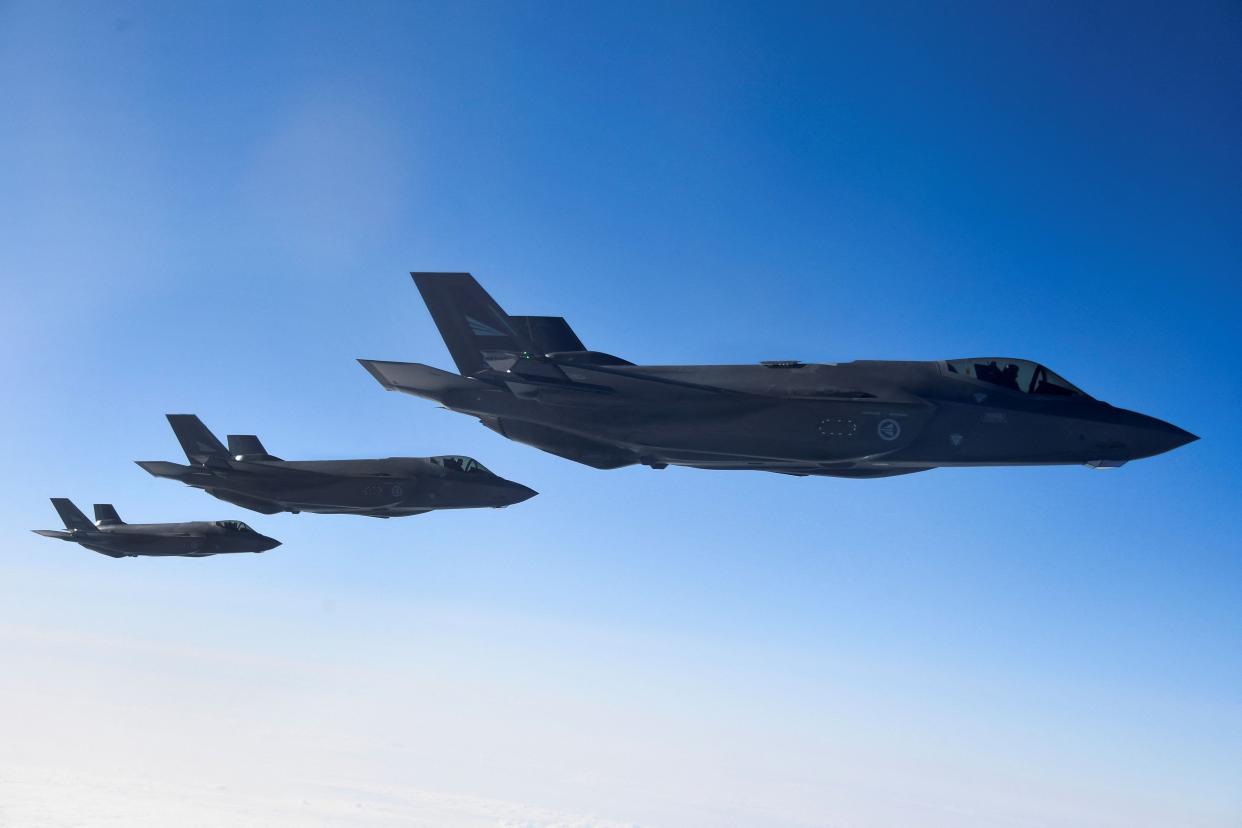Norway, Sweden, Finland, and Denmark struck a deal to run their 200+ advanced fighter jets as a single fleet, creating a new headache for Russia

The four Nordic countries agreed to operate their roughly 250 fighter jets in one fleet.
Sweden, Norway, Finland and Denmark, have modern air forces that include F-35s.
They joined forces hoping to deter Russia.
The air forces of four Nordic countries agreed to operate their fleets of around 250 fighter jets as a combined force, hoping to deter Russia by working together.
Air force commanders of Sweden, Norway, Finland and Denmark said Friday that they have signed a letter of intent to establish a unified Nordic air defense, Reuters reported.
"The ultimate goal is to be able to operate seamlessly together as one force by developing a Nordic concept for joint air operations based on already known NATO methodology," Denmark's air force said in a statement, per Bloomberg.
"Our combined fleet can be compared to a large European country," commander of the Danish air force, Major General Jan Dam, told Reuters.
Dam said the move was in response to Russia's invasion of Ukraine last year. The invasion also prompted Sweden and Finland to seek entry into NATO, an alliance which already includes Denmark and Norway.
The joint force will be a worry for Russia, boasting a significant number of top-tier fighter jets.
Norway, Denmark, and Finland have all committed to the F-35 jets which are the most advanced Western fighter planes. Norway operates some already, while Finland and Denmark are due to receive them in the coming years.
Sweden has its own model of fighter jet, the Gripen C and D, with modernized Gripen E planes on order.
NATO Air Command chief General James Hecker was also present at the signing of the letter at Ramstein Air Force Base in Germany.
Sweden and Finland applied to join NATO in May 2022, jolted by Russia's invasion of Ukraine into ending decades of their position of "non-alignment."
Their applications have been held up by Turkey and Hungary, who are yet to ratify the memberships.
One of the many reasons cited by Russian President Vladimir Putin as justification for his invasion of Ukraine has been NATO's enlargement since the Cold War.
However, Russia's war in Ukraine led to further expansion of the alliance, and increased co-operation and defense spending by its members.
Read the original article on Business Insider

